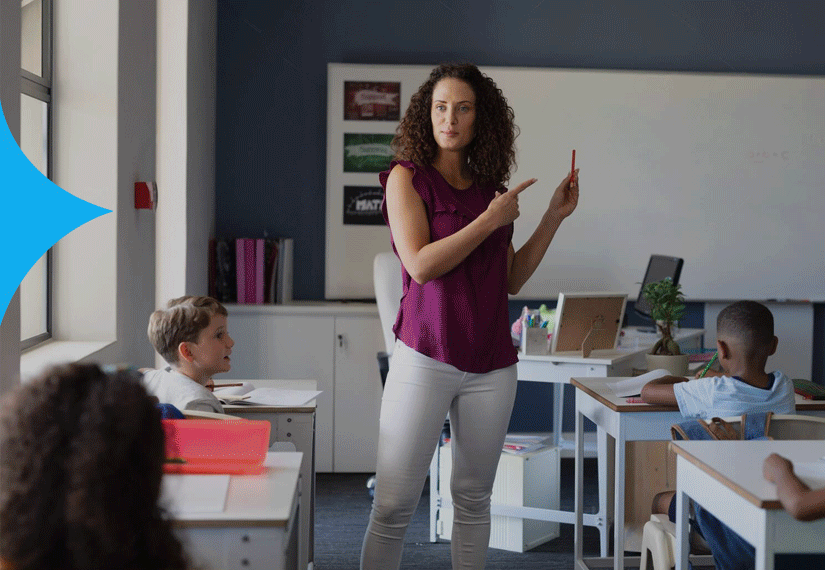Teachers in US schools have a wide range of duties and responsibilities that extend far beyond simply imparting knowledge to their students. Their roles encompass various aspects of education, support, and community-building. Here is an elaboration on the duties of teachers in US schools:

Instruction
The primary duty of teachers is to provide quality instruction to their students. They develop lesson plans, create engaging learning activities, and deliver content in a manner that promotes student understanding and achievement. They assess student progress, provide feedback, and adjust their teaching strategies as needed to meet the diverse learning needs of their students.

Curriculum Development
Teachers participate in curriculum development and alignment processes. They collaborate with colleagues and administrators to design curriculum frameworks, select instructional materials, and ensure that the curriculum meets state and national standards. They also incorporate innovative teaching approaches and technology to enhance the learning experience.

Classroom Management
Maintaining a positive and productive learning environment is crucial. Teachers establish and enforce classroom rules and expectations, manage student behavior, and promote a sense of respect and inclusivity. They address discipline issues and implement strategies to create a safe and supportive atmosphere conducive to learning.

Individualized Instruction
Teachers recognize that students have different strengths, weaknesses, and learning styles. They strive to provide individualized instruction, adapting their teaching methods and materials to accommodate diverse student needs. They may differentiate assignments, offer additional support to struggling students, or provide enrichment opportunities for advanced learners.

Assessment and Evaluation
Teachers regularly assess student learning through formative and summative assessments. They design quizzes, tests, projects, and other evaluations to measure student progress and understanding. They analyze assessment data to identify areas of improvement and adjust their instructional practices accordingly. Teachers also provide meaningful feedback to students and communicate their progress to parents or guardians.

Student Support
Beyond academics, teachers play a vital role in supporting students' social and emotional development. They foster positive relationships, provide guidance, and create a nurturing environment where students feel valued and supported. Teachers may address personal challenges, promote mental health awareness, and refer students to appropriate support services when necessary.

Collaboration and Professional Development
Teachers collaborate with colleagues, administrators, and parents to enhance the educational experience. They participate in team meetings, grade-level planning, and professional learning communities to share best practices, discuss student progress, and address common challenges. Teachers also engage in ongoing professional development to stay updated on research-based strategies and educational trends.

Parent and Community Engagement
Teachers maintain open lines of communication with parents or guardians. They provide regular updates on student progress, discuss concerns, and encourage parental involvement in their child's education. They may organize parent-teacher conferences, workshops, or volunteer opportunities to foster a strong home-school partnership. Teachers also contribute to the broader community by participating in school events, committees, or extracurricular activities.

Professional Responsibilities
Teachers fulfill administrative duties such as record-keeping, grading, and attendance monitoring. They adhere to school policies, follow ethical guidelines, and maintain confidentiality regarding student information. Teachers actively engage in self-reflection and seek professional growth opportunities to continually improve their instructional practices. Overall, teachers in US schools are dedicated professionals who go above and beyond to create a nurturing learning environment, foster student growth, and prepare students for the challenges of the future. Their duties encompass not only teaching academic content but also providing support, guidance, and inspiration to their students.
Here are some common interview questions for high school teaching positions:
Why did you decide to become a high school teacher?
How do you create a positive and inclusive classroom environment?
Can you describe your teaching philosophy and how it aligns with the school's mission?
How do you differentiate instruction to meet the needs of diverse learners in your classroom?
How do you incorporate technology into your teaching practices?
How do you assess student learning and track their progress?
Can you provide an example of a lesson plan you have developed and implemented successfully?
How do you manage classroom behavior and promote student engagement?
How do you collaborate with colleagues and parents to support student success?
How do you handle conflicts or challenges with students, parents, or colleagues?
Can you share an experience where you went above and beyond to support a struggling student?
How do you stay updated with the latest educational trends and research?
Can you discuss your experience with extracurricular activities or involvement in school events?
How do you foster a love for learning and a growth mindset in your students?
Can you talk about a time when you had to adapt your teaching strategies to accommodate different learning styles?
Remember, it's important to personalize your responses based on your experiences, skills, and the specific needs of the school or district you are applying to. Good luck with your interview!



